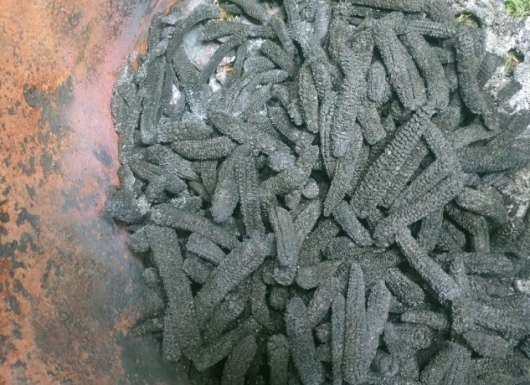Submitter: (ICRISAT)
Declining Soil Organic Carbon (SOC) is a critical issue affecting soil fertility, water retention, and climate resilience especially in smallholder farming systems. This solution focuses on enriching SOC through biochar application, composting of organic residues, and conservation agriculture (CA) practices, offering an integrated approach that transforms agricultural waste into a valuable resource. It represents a practical “waste-to-wealth” initiative, where crop residues, animal waste, and on-farm biomass are recycled into long-lasting carbon sources to regenerate soil health.
In India, the availability of surplus crop residues is estimated at 84–141 million tonnes per year, while broader assessments by the National Policy for Management of Crop Residues (MNRE) estimate over 500 million tonnes annually, of which 92 million tonnes are burned in fields. Conservation Agriculture enables in-situ recycling of these residues, while unused portions can be diverted to biochar and compost production, offering a circular, carbon-positive solution that addresses both environmental degradation and climate goals.

This approach is well-suited to diverse farming systems, where chemical inputs are limited and soil degradation is advanced. It has already been tested in multi-location trials in Uttar Pradesh, Maharashtra, and eastern India, and shows potential for large-scale uptake through landscape restoration.
Field trials across multiple sites have shown that the biochar and compost can increase SOC by 15–40%, depending on soil type and management. Conservation agriculture practices have reduced erosion losses by up to 60%, enhanced moisture availability during dry spells, and improved crop yields by 10–25%. Enhanced microbial biomass and enzyme activity have been observed, confirming a biological recovery of the soil system. Farmer feedback also indicates reduced input needs and more stable yields under these practices.
Dr Gajanan Sawargaonkar, Phone:- 7702540820 Email- Gajanan.Sawargaonkar@icrisat.org
Dr Santosh Kale: phone 9764881799 Email: Santosh.Kale@icrisat.org
Dr Rajesh Pasumarthi: Phone-9960661132 email: Rajesh.Pasumarthi@icrisat.org
Dr Rakesh S: Phone- 9972470571 Email: Rakesh.Savan@icrisat.org
Dr Prasad Kamdi: Phone-9701060490 Email. Prasad.Kamdi@icrisat.org